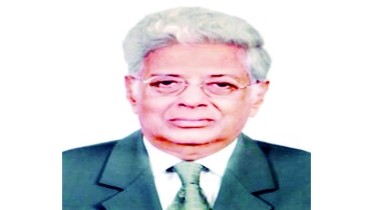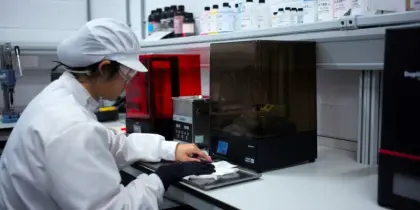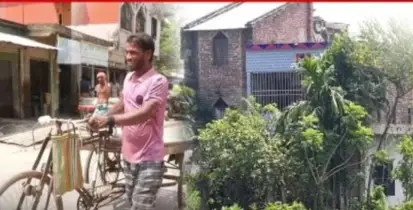(গতকালের সম্পাদকীয় পাতার পর)
আদালত অবমাননা বিষয়ে নতুন দৃষ্টিভঙ্গি প্রয়োজনীয়। বর্তমানে আদালত যেভাবে আদালত অবমাননাকে দেখছেন তা ঔপনিবেশিকোত্তর ঔপনিবেশিক মনের পরিচায়ক। মনে রাখতে হবে, এই স্বাধীন দেশে জনগণ সার্বভৌম, আইন, নির্বাহী বা জুডিশিয়ারির হাত লম্বা হতে পারে কিন্তু তারও সীমা থাকতে হবে। কারণ, জনগণের টাকায় যাদের বেতন ও সুযোগ-সুবিধা দেয়া হয় তারা সবাই জনগণের সেবক। প্রধানমন্ত্রী, প্রধান বিচারপতি এবং হরিদাস পাল, মুনতাসীর মামুনের এক্ষেত্রে কোন পার্থক্য নেই।
মার্কন্ডেয় কাটজু ছিলেন ভারতীয় সুপ্রিমকোর্টের নামকরা একজন বিচারক। তিনি বলেছিলেন, ÒTHE BASIC principle in a democracy is that the people are supreme. It follows that all authorities whether judges, legislators, Ministers, bureaucrats ate servants of the people. Once this concept of popular sovereignty is kept firmly in mind, it becomes obvious that the people of India are the masters and all authorities (including the courts) are their servants. Surely, the master has the right to criticise the servant if the servant does not act or behave properly. It would logically follow that in a democracy the people have the right to criticise judges. Why then should there be a Contempt of Courts Act, which to some extent prevents people from criticising judges or doing other things that are regarded as contempt of court?
In a democracy, the purpose of the contempt power can only be to enable the court to function. The power is not to prevent the master (the people) from criticising the servant (the judge) if the latter does not function properly or commits misconduct. [দি হিন্দু, ২২.১.২০০৭]
তিনি আরো বলছেন, ভারতীয় সংবিধানে ১৯(১)(ক) ধারায় জনগণের বাকস্বাধীনতার অধিকার দেয়া হয়েছে। আবার ১২৯ ও ২১৫ ধারায় উচ্চ আদালতকে আদালত অবমাননার অধিকার দেয়া হয়েছে। এক্ষেত্রে বিষয়টি যদি সাংঘর্ষিক মনে হয় তাহলে কী হবে?
সেক্ষেত্রে, তিনি বলেছেন, বাকস্বাধীনতা অগ্রাধিকার পাবে, আদালত অবমাননা নয়। তবে, সে স্বাধীনতা যাতে আদালতের প্রতিবন্ধকতা না হয় তা বিচার্য। তিনি বলছেন, কেউ যদি আদালতের মঞ্চে উঠে কোর্ট ফাইল নিয়ে চলে যায় বা সাক্ষীকে হুমকি দেয়, চিৎকার করে তা’হলে তা প্রতিবন্ধকতা সৃষ্টি করছে বলে বিবেচিত হবে। এ পরিপ্রেক্ষিতে তিনি আইনজীবী ফলি নরিম্যানের একটি বক্তব্য উদ্ধৃত করে বলেছেন-
ÒIn a speech delivered on the topic ÒThe Law of contempt is it being stretched too far?Ó the doyen of the Indian Bar Fali Nariman said the offence of scandalising the court is a mercurial Jurisdiction in which there are on rules and on constraints.
He and others are perfectly correct in saying there should be certainty in the law, and not uncertainty. After all, the citizen should know where he or she stands. There are two reasons for the uncertainty in the law of contempt of court. In the Cotempt of Courts Act, 1952, there was no definition in the law of Ôcontempt.’ Secondly, even when a definition was introduced by the Contempt of Courts Act, 1971 (vide Section 2), there was on defintition of what constitutes scandalising the court, or what prejudices, or interferes with, the course of justice. What could be regarded as scandalous earlie may not be regarded as scandalous today and what could earlier be regarded as prejudicing or interfering with the course of justice may not be so regarded today.
তিনি আরও বলেছেন, এ অঞ্চলে আদালত অবমাননা সম্পর্কে যে ধারণা তা ঔপনিবেশিক আমলের। স্বাধীন দেশে তা চলতে পারে না। এ প্রসঙ্গে তিনি ব্রিটেনের দুই বিচারকের উদ্ধৃত দিয়েছেন যাদেরকে এ দেশের বিচারকরা প্রায়ই উদ্ধৃত করেন। এদের একজন লর্ড সালমন। একটি মামলায় তিনি বলেছিলেন- ‘The description Ôcontempt of court’ no donet has a historicol bairs, but it is none the less misleading. It object is not to proect the disnity of the court but to crocet the administration justice.’
১৯৬৮ সালের এক মামলায় লর্ড ডেনিং লিখেছে Let me say at once that we will never use this jurisdiction as a mears to uphold our dignity. That mustrest on surer foundations nor will we use it to supprem those who speak aganist us. we do not fear criticism, nor do we resent it. For there is something far move important at stake. It is no less then freedom of speech itself.‘ [ঐ]
সবশেষে তিনি বলেছেন, একজন বিচারপতি তার ক্যারিয়ারে আদালত অবমাননার ক্ষমতা প্রয়োগ করার কোন প্রয়োজন নেই।
‘The best shield and armoue of a judge is his reputation of integrity, impartiality, and learning. An upright judge will hardly ever need to use the contempt power in his judicial career. I submit that the law of contempt of court can be made certain once it is accepted that the purpose of the contempt power is not to vindicate or uphold the majesty and dignity of the court (for it is automatically vindicated and upheld by the proper conduct of the judge, not by threats of using the contempt power) but only to enable the court of function. The contempt power should only be used in a rare and exceptional situations where, without using it, becomes impossible or extremely difficult for the court to function. In such situations, the contempt power should not be used if a mere threat to use it suffices.’ [ঐ]
কাটজু উপসংহার টেনেছেন ডেভিড প্যানিকের ‘জাজেস’ বই থেকে।
ÒSome politicians, and a few jurists, urge that it is unwise or even dangerous to tell the truth about the judiciary. Judge Jerome Frank of the US Court of Appeals sensibly explained that he had little patience with, or respect for, that suggestion. I am unable to conceive... that, in a democracy, it can never be wise to acquaint the public with the truth about the workings of any branch of government. It is wholly undemocratic to treat the public as children who are unable to accept the inescapable shortcomings of man-made institutions... The best way to bring about the elimination of those shortcomings of our judicial system which are capable of being eliminated is to have all our citizens informed as to how that system now functions. It is a mistake, therefore, to try to establish and maintain, through ignorance, public esteem for our courts.’
আমি আরেকটু টেনে বলব, পাবলিক-কে শিশু হিসেবে শুধু বিচার বিভাগের নয়, নির্বাহী ও আইন বিভাগের দেখা উচিত নয়।
কেন এ রকম হয়। এর কারণ ‘মাথা ঝিমঝিম রোগ’। আমরা কোন পদে গেলেই মনে করি কিছু একটা হয়ে গেলাম। জুডিশিয়ারির কথা বাদ দিই, কমিশনার, ডেপুটি কমিশনারের মতো সামান্য পদাধিকারীরাও আমাদের সঙ্গে যে ব্যবহার করেন তাতে মনে হয় বাংলাদেশ তাদের পৈত্রিক সম্পত্তি। কোন অধ্যাপকও যদি নির্বাহী কোন পদে যান তার অবস্থাও এমন হয়। একটি ঘটনার কথা মনে পড়ে। একবার বিমানবন্দরে ভিআইপি লাউঞ্জে একজনের জন্য অপেক্ষা করছি। এমন সময় একজনের সঙ্গে দেখা। আমরা একসঙ্গে এক সময় সাংবাদিকতায় ছিলাম। আমি তার কুশল জিজ্ঞাসা করলাম। তিনি এমনভাবে তাকালেন যে, আমার মতো স্যান্ডেল পায়ে একজনের কী অধিকার আছে তার কুশল জিজ্ঞাসার। তার মুখাবয়ব রঙিন, চোখ ঘোলাটে, বারবার এদিক-সেদিক চাচ্ছেন। বুঝলাম তিনি মাথা ঝিমঝিম রোগে আক্রান্ত। একজনকে জিজ্ঞেস করলাম, ঐ লোক কি কোন নির্বাহী পদে আছেন? তিনি আমার অজ্ঞতায় অবাক হয়ে বললেন, জানেন না তিনি খালেদার [তখন প্রধানমন্ত্রী] প্রেস সচিব নিযুক্ত হয়েছেন।
খুলনায় ১৯৭১ : গণহত্যা-নির্যাতন আর্কাইড ও জাদুঘর প্রতিষ্ঠা করেছি। প্রধানমন্ত্রী এক টুকরো জমি দিয়েছেন। কিন্তু তা পেতে খুলনার দুই কমিশনারের হাতে এমন নাজেহাল হয়েছি যেন আমি ভিক্ষুক। কিছু বলিনি। কিন্তু, আমার জীবনে আমি এমন অনেক পদাধিকারী দেখেছি পদে গিয়েই যাদের মনে হয়েছে, একে মাথায় একটা গাট্টা মারি। তাকে একটা চড় দিই, আরেকজনের পশ্চাৎদেশে লাথি মারি। পদ হারানোর পর দেখেছি তাদের অবস্থা ভেজা তুলোর মতো। আমি পাবলিক, মুনতাসীর মামুন যেখানে ছিলাম সেখানেই আছি। (চলবে)
ঢাকা, বাংলাদেশ রোববার ০৬ জুলাই ২০২৫, ২১ আষাঢ় ১৪৩২








